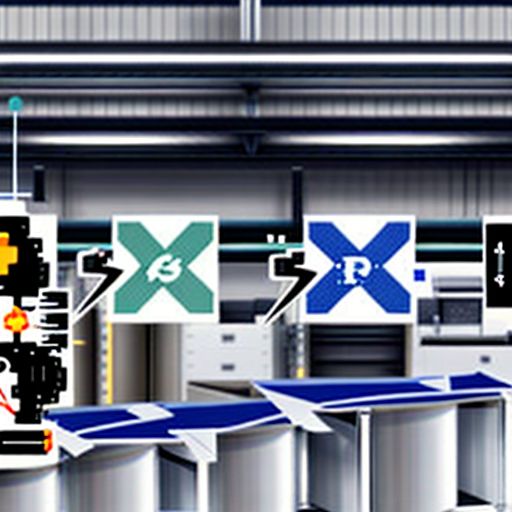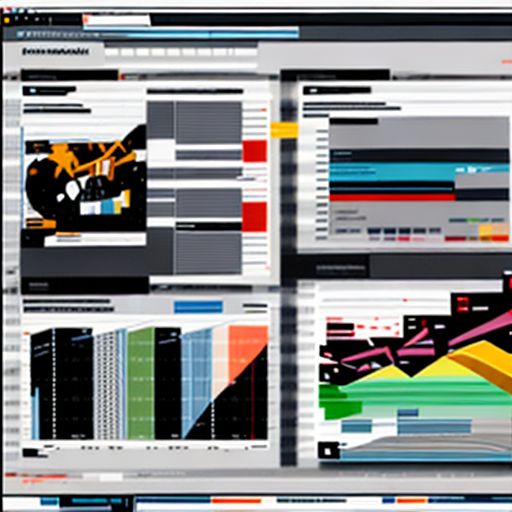In today’s fast-paced business landscape, efficiency and data-driven decision making are paramount. This is where Enterprise Resource Planning (ERP) software takes center stage, offering a comprehensive suite of tools to streamline operations, improve collaboration, and boost profitability. This guide delves into the world of ERP software, exploring its intricacies, benefits, and how it can revolutionize your business.
What is ERP Software?
ERP software integrates all core business processes into a unified system, providing a centralized hub for managing data, automating workflows, and gaining real-time insights. From finance and accounting to inventory management, human resources, and customer relationship management (CRM), ERP systems connect different departments, enabling seamless information flow and eliminating data silos.
Why is ERP Software Important?
The significance of ERP software lies in its ability to transform businesses by:
- Improving efficiency and productivity: Automating tasks, streamlining workflows, and reducing manual errors free up valuable time and resources.
- Enhancing data visibility and decision-making: Real-time access to accurate data across all departments empowers businesses to make informed decisions quickly.
- Boosting collaboration and communication: Breaking down departmental barriers through a centralized system fosters better communication and collaboration.
- Increasing profitability and cost savings: Optimized processes, reduced redundancies, and improved resource allocation contribute to increased profitability.
- Gaining a competitive advantage: Businesses can adapt quickly to changing market demands and outperform competitors by leveraging the power of ERP.
Exploring Common ERP Software Questions
As you delve deeper into the world of ERP software, you’re likely to encounter various questions. Here are some of the most frequently asked questions about ERP software:
What are the different types of ERP software?
ERP software comes in various types, each tailored to specific business needs:
- On-premises ERP: Traditional software installed and managed on a company’s servers.
- Cloud-based ERP: Hosted on the vendor’s servers and accessed via the internet, offering flexibility and scalability.
- Hybrid ERP: A combination of on-premises and cloud-based solutions, providing the best of both worlds.
- Industry-specific ERP: Tailored to the unique requirements of particular industries, such as manufacturing, retail, or healthcare.
How do I choose the right ERP software for my business?
Selecting the right ERP software requires careful consideration of factors like:
- Business size and complexity: Different ERP systems cater to the needs of small, medium, and large enterprises.
- Industry-specific requirements: Choose a system aligned with the specific needs of your industry.
- Budget and implementation costs: Evaluate the total cost of ownership, including licensing, implementation, and maintenance.
- Integration with existing systems: Ensure the ERP software integrates seamlessly with your current IT infrastructure.
- Scalability and future growth: Opt for a system that can accommodate your business’s future growth and expansion plans.
What are the key features to look for in ERP software?
Essential features to consider when evaluating ERP software include:
- Financial management: Accounting, budgeting, financial reporting
- Inventory management: Tracking, procurement, warehousing
- Customer relationship management (CRM): Sales, marketing, customer service
- Human resources management (HRM): Payroll, benefits, recruitment
- Supply chain management (SCM): Procurement, logistics, production
- Business intelligence (BI) and reporting: Dashboards, analytics, custom reports
erp.bartenderqh.com/wp-content/uploads/2024/07/erp-software-dashboard-669487.jpg" alt="ERP Software Dashboard" width="512" height="512">ERP Software Dashboard
Conclusion
ERP software has become indispensable for businesses seeking to thrive in today’s competitive landscape. By embracing the power of ERP, organizations can streamline operations, gain real-time insights, and empower their workforce to make data-driven decisions. Carefully assessing your business needs, understanding the different types of ERP software, and selecting the right solution are crucial steps towards unlocking the transformative potential of ERP.










